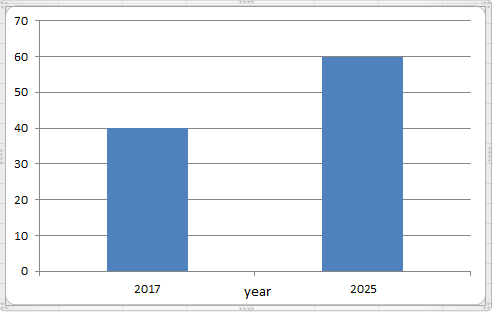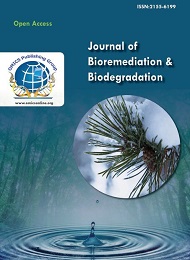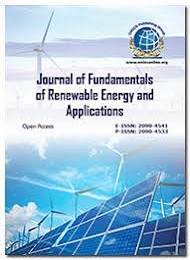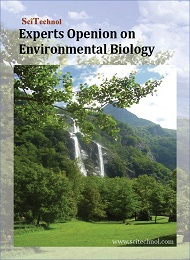Theme: Unleash your research at Green Energy and effects of lockdown on pollution
Green Energy Meet-2020
- About Green Energy Meet-2020
- Session/Tracks
- Market Analysis
- Participating Categories
- Abstract Submission Criteria & Eligibility
- Past Conference Report
It is a pleasure and an honour to extend to you a warm invitation to attend the Conference 2nd International Conference on Green Energy during May 07-08, 2020 in Zagreb, Croatia. The theme of the conference is “Unleash your research at Green Energy and effects of lockdown on pollution” We warmly invite all the participants interested in sharing their knowledge and research within the arena of green energy and environmental sciences.
The aim of International Conference on Green Energy is to promote interest, disseminate information, and spread data on all parts of ecological. To present the latest research results in the field of environmental science, green energy and climate changes in the light of practical needs. We welcome you to go along with us at the Green Energy Meet 2020, where you will make certain to have a significant involvement with researchers from around the globe. The meeting will have visitor addresses, symposiums, entire sessions and workshops in different parts of Environmental Science.
Why to attend:
Green Energy Meet-2020 will look to create fascinating gathering of Environmental Science professionals from around the world to discuss and present their latest research. The conference gives the greatest opportunity for gathering with Industrial professionals, Academic speakers, Decision-makers, interacting and essential novel prospects in Environmental Science research. It helps in dynamically adding value to Green Energy, R&D businesses.
Green Energy:
Green energy comes from natural sources like sunlight, wind, rain, tides, plants, algae and geothermal heat. These energy resources are renewable, which implies they are naturally replenished. Green energy, however, utilizes energy sources that are promptly obtainable everywhere the globe, as well as in rural and remote areas that do not otherwise have access to electricity. Green energy sources help reduce harmful emissions and cleans up air and water quality, which improves public health and lowers overall healthcare costs.
Bio Fuel:
Biofuel, any fuel that is derived from biomass—that is, plant or algae material or animal waste. Since such feedstock material can be replenished promptly, biofuel is taken into account to be a source of renewable energy, not like fossil fuels like petroleum, coal, and gas. The reasons why we need bio fuels is that biofuel can be utilized in today’s engines of vehicles infrastructures and vehicles while not the requirement to create changes. Biofuels can be keep and burned and pumped up a similar way as oil and diesel.
Biomass & Bioenergy:
Biomass is plant or animal material used for energy production, or in varied industrial processes as raw material for a variety of product as an energy supply, biomass can either be used directly via combustion to produce heat, or indirectly when converting it to varied types of biofuel. Conversion of biomass to biofuel can be achieved by totally different ways that area unit loosely classified into: thermal, chemical, and organic chemistry ways. Cofiring with biomass has increased in coal power plants, as a result of it makes it attainable to release less greenhouse gas without the cost related to building new infrastructure.
Bioenergy is that the energy originated from materials derived from biological sources. Bioenergy makes from several natural resources like plants, animals and their by-products. The term bioenergy additionally covers transport fuels made from organic matter. Bioenergy is a very versatile energy supply. It can be turned up and down quickly to fulfil demand, creating it an excellent backup for weather-dependent renewable technologies like wind and solar.
Renewable Energy:
Renewable energy is energy produced from sources that do not deplete or can be replenished within a human’s life time. Utmost renewable energy comes directly or indirectly from the sun. Sunlight can be captured directly using solar technologies. Renewable energy systems are better for the environment and produce less emission than conventional energy sources. Renewable energy systems provide energy from sources that will never deplete.
Climate Change:
Climate change refers to vital changes in global temperature, precipitation, wind patterns and different measures of climate that occur over many decades or longer. Global climate change jointly will increase the looks of plenty of violent weather phenomena, drought, fires, and also the death of animal and plant species, flooding from rivers and lakes, the creation of climate refugees.
Bioremediation:
Bioremediation is a method used to treat contaminated media, as well as water, soil and subsurface material, by altering environmental conditions to stimulate the growth of microorganisms and degrade the target pollutants. In several cases, bioremediation is less expensive and additional property than different remediation alternatives. Bioremediation can also be utilized in alternative water systems like rivers, streams, and estuaries. Bioremediation is a useful technique for both developed and underdeveloped communities alike.
Solar Energy:
Solar energy is beaming light and warmth from the Sun that's controlled employing a vary of ever-evolving technologies like solar heating, photovoltaics, solar thermal power, solar design, liquefied salt power plants.it is a crucial supply of renewable energy and its technologies are usually characterized as either passive solar or active solar reckoning on however they capture and assign solar energy or convert it into solar power. One of the solar technique include photovoltaic (PV gadgets) or "sun primarily based cells" that modification daylight legitimately into power.
Green Nanotechnology:
Green nanotechnology refers to the utilization of nanotechnology to strengthen the environmental sustainability of processes generating negative externalities. Green nanotechnology has 2 goals: manufacturing nanomaterials and product without harming the surroundings or human health, and manufacturing Nano-products that offer solutions to environmental issues. Green nanotechnology involves the utilization of less energy throughout manufacture, the ability to recycle after use, and using eco-friendly materials.
Environmental Sustainability:
Environmental sustainability is that the rates of natural resources harvest, pollution creation, and non-renewable resource depletion that can be continuing indefinitely. Sustainability is everything that we have a tendency to wish for our survival and well-being against industrial pollution. Sustainability issues are for the foremost part communicated in logical and ecological terms, and additionally in ethical terms of position, however executing modification could also be a social check that involves, international and national law, neighbourhood and individual ways that of life and ethical industrialism.
Green Architecture:
Green architecture is an approach to putting together that minimizes the harmful effects of construction projects on human health and also the surroundings. Sustainable architecture uses a aware approach to energy and ecological conservation within the design of the designed surroundings. The "green" architect attempts to safeguard air, water, and earth by selecting eco-friendly building materials and construction practices. The very best goal of green architecture is to be totally sustainable. Simply put, people do "green" things so as to attain environment sustainability.
Waste to Energy:
Waste to Energy (WTE), is a term that's used to describe numerous technologies that convert non-recyclable waste into usable kinds of energy as well as heat, fuels, and electricity. Most Waste to Energy processes generate electricity and/or heat directly through combustion, or manufacture flammable fuel trade goods, like paraffin, methanol, ethyl alcohol or synthetic fuels. One example of Waste to Energy is anaerobic digestion (AD), a previous however effective technology that biologically converts organic material into compost similarly as biogas for energy. Another method, referred to as pyrolysis, will thermo-chemically convert waste products into clean liquid fuels.
Green Chemistry:
Green chemistry, additionally referred to as sustainable chemistry, is a section of chemistry and chemical engineering centred on the planning of products chemical merchandise and processes that reduce or eliminate the generation of hazardous substances. Green chemistry focuses on the environmental impact of chemistry, as well as reducing the consumption of non-renewable resources and technological approaches for preventing pollution. Atomic economy, prevention, less dangerous chemical synthesis, design of safer chemicals, design for energy potency, use of renewable feed, chemical change are a number of the principles of the green chemistry. Green chemicals either degrade to innocuous products or are recovered for additional use.
Green Economy:
A green economy is defined as low carbon, resource economical and socially inclusive. It aims at creating problems with reducing environmental risks and ecological scarcities, which aims for sustainable development while not degrading the atmosphere. A low-carbon economy additionally named low-fossil-fuel economy is an economy sustained low carbon power sources that thus sorts a slight amount produced of greenhouse gas emissions. The green economy presents another vision for growth and development, within which economic process and enhancements in people’s lives are generated in ways in which according to sustainable development.
Energy Recycling:
Energy recycling is that the energy recovery method of utilizing energy that may commonly be wasted, typically by changing it into electricity or thermal energy. Combined Heat and Power (CHP) may be a variety of energy utilization, wherever processes and equipment are designed provide to provide power and additionally supply heat instead of waste it. Energy recycling and CHP will be enforced at industrial sites, producing facilities and enormous institutions like hospitals and universities. Every CHP plant lowers their host’s energy prices and reduces emissions as compared to purchasing power off of the grid or burning fuels to supply steam with boilers.
Waste Management:
Waste management are the activities and actions required to accomplish waste from its inception to its final removal. This comprises the gathering, transport, treatment and disposal of waste, together with observing and regulation of the waste management process. The major aim of waste management is to keep away from the adverse results of wastes to human fitness and natural environment. Waste substances can furthermore be in all types of matter, which are gaseous, liquids, radioactive matter, and compact. According to waste management companies, there are several waste management techniques.
Green Energy is generating energy that produces no greenhouse emissions from fossil fuels and reduces some sorts of pollution. The renewable energy business remains one in all the most vibrant, fast-changing, and transformative sectors of the worldwide economy. Technology enhancements, cost declines, and also the catalytic influence of recent financing structures, have turned the world into a driver of economic growth round the world.
The renewable-energy industry is that the part of the energy industry that specialize in new and acceptable renewable energy technologies. Investors worldwide have paid greater attention to the present rising business in recent years. The worldwide renewable energy market is anticipated to grow significantly throughout the forecast period due to increased emissions of greenhouse gases (GHGs), significantly greenhouse gas because of utilization of fossil fuels for generation of energy. Additionally, restricted presence of fuel on the planet in addition its volatile prices fuels the renewable energy market.
However, generation of energy from renewable sources needs large investment. This issue is anticipated to hamper the market growth throughout the forecast period. Moreover, in the Middle East, fossil fuels are majorly used to generate energy because of its price effective nature as compared to alternative regions. This hampers the expansion of the market. The renewable energy market was expected to achieve high by 2025. The worldwide renewable energy market was valued at $928.0 Billion in 2017, and is expected to achieve $1,512.3 Billion by 2025, registering a CAGR of 6.1% from 2018 to 2025.
Categories are Speakers, Workshops, Symposium, Exhibitor, Young researcher talk, Delegate, Poster, Business Meetings/Networking and extra benefits for our Event Sponsor.
We offer the following types of participating categories:
Speakers: This officially involves all individuals related to the fields of Environmental Science, who have submitted their abstracts and are accepted after proficient peer review. All Professors, Associate Professors, Deans, Chairs, Scholars, Environmental Science professionals, Renewable Energy Professionals, PhD are capable candidates (with unique abstracts) to participate as Speakers.
Delegates: Individuals from or outside the field of Environmental Science, interested to learn, interact with experts and spread awareness on methods learned to combat Emergency are accepted as Delegates.
Students/Young Researchers: Scholars and researchers pursuing their work or study in the field of Environmental Science are capable of applying under this category. They are allowed to publish their abstract, speak on them and also opt for poster presentations on their unique work.
Video Presenters/E-Posters: Individuals interested to attend but unable to come at the city venue are offered this option to present their unique work and research at our conference.
Business: Companies, Associations, Universities and Societies strictly from the field of Environmental Science, willing to recruit excellent young candidates participating, present their work and contribute to increase awareness about green energy are welcomed to join us at our conference.
PRESENTATION REQUIREMENTS:
- Presenting authors are responsible for registration, travel, and hotel costs.
- Note: Those with accepted abstracts will receive an acceptance mail allowing them to register for the conference.
- Abstracts will be compiled and conference books are made available to participants at the conference.
- Any presenter who is unable to attend should arrange for another qualified individual to present the paper/poster in question. If such a change is necessary, please notify our conference team
SUBMISSION OPTIONS:
- Oral paper presentations will have 30-minute time slots and be clustered by theme into sessions. The keynote session will have for 45-minute time slot, workshop/ special session will have 60-minute time slot and symposium will have 60-minute time slot followed by 5-minute Q&A session.
- Graduate & Masters students are eligible to submit their abstracts under poster and e-poster presentation category.
- Ph.D. students are eligible to submit their abstract under special YRF (young researcher’s forum), poster and e-poster presentation category.
NOTE: YRF category includes short oral presentation especially for Ph. D. students
- Extended abstract: Submissions should utilize the Abstract Template. Papers submitted in this category may represent original empirical research, theoretical development, reviews, or critiques.
Green Energy 2019
The “International Conference on Green Energy” (Green Energy 2019) hosted by Conference series LLC Ltd during April 01-02, 2019 at Amsterdam, Netherlands with a theme “Renewable Energy & Emerging Technologies.”
The conference was a great success where eminent Keynote Speakers from various reputed institutions with their presence addressed the gathering to explore ideas for renewable energy technologies. This event was really aimed for sharing their knowledge on future advancements and purpose of the event was to provide an opportunity for innovative ideas and development of ideas, in the field of Renewable Energy.
Active participation and generous response was acknowledged from the Organizing Committee Associates, Editorial Board Members of Journals further as from Eminent Scientists, expert Scientists, Speakers, and Young Student Communal. Specializing in main sessions Biofuels, global warming, Bio remediation, green Economy, global climate change & Renewable Energy, Waste to Energy, photovoltaic, Energy Storage further, the two days of discussions enabled professionals to realize an insight into this innovations and displayed networking opportunities.
Conference Series LLC Ltd expresses its gratitude to the Organizing Committee Members, Chair and Co-chair, Editorial Board Members of Conference Series LLC Ltd journals, Speakers, Students, Sponsors, Exhibitors, eminent personalities and Media Partners in creating green Energy 2019 a good success. With the characteristic feedback from the conference, Conference Series LLC Ltd would really like to announce the commencement of the “2nd International Conference on green Energy” is going to be held throughout May 07-08, 2020 at Zagreb, Croatia.
Mark your calendars for the forthcoming conference; we are hoping to see you soon!!!!
Let us meet again @ Green Energy Meet 2020
To share your views and research, please click here to register for the Conference.
To Collaborate Scientific Professionals around the World
| Conference Date | May 07-08, 2020 | | ||
| Sponsors & Exhibitors |
|
||
| Speaker Opportunity Closed | Day 1 | ||
| Poster Opportunity Closed | Click Here to View | ||
Useful Links
Special Issues
All accepted abstracts will be published in respective Our International Journals.
- Journal of Bioremediation & Biodegradation
- Journal of Fundamentals of Renewable Energy and Applications
- Expert Opinion on Environmental Biology
Abstracts will be provided with Digital Object Identifier by




































